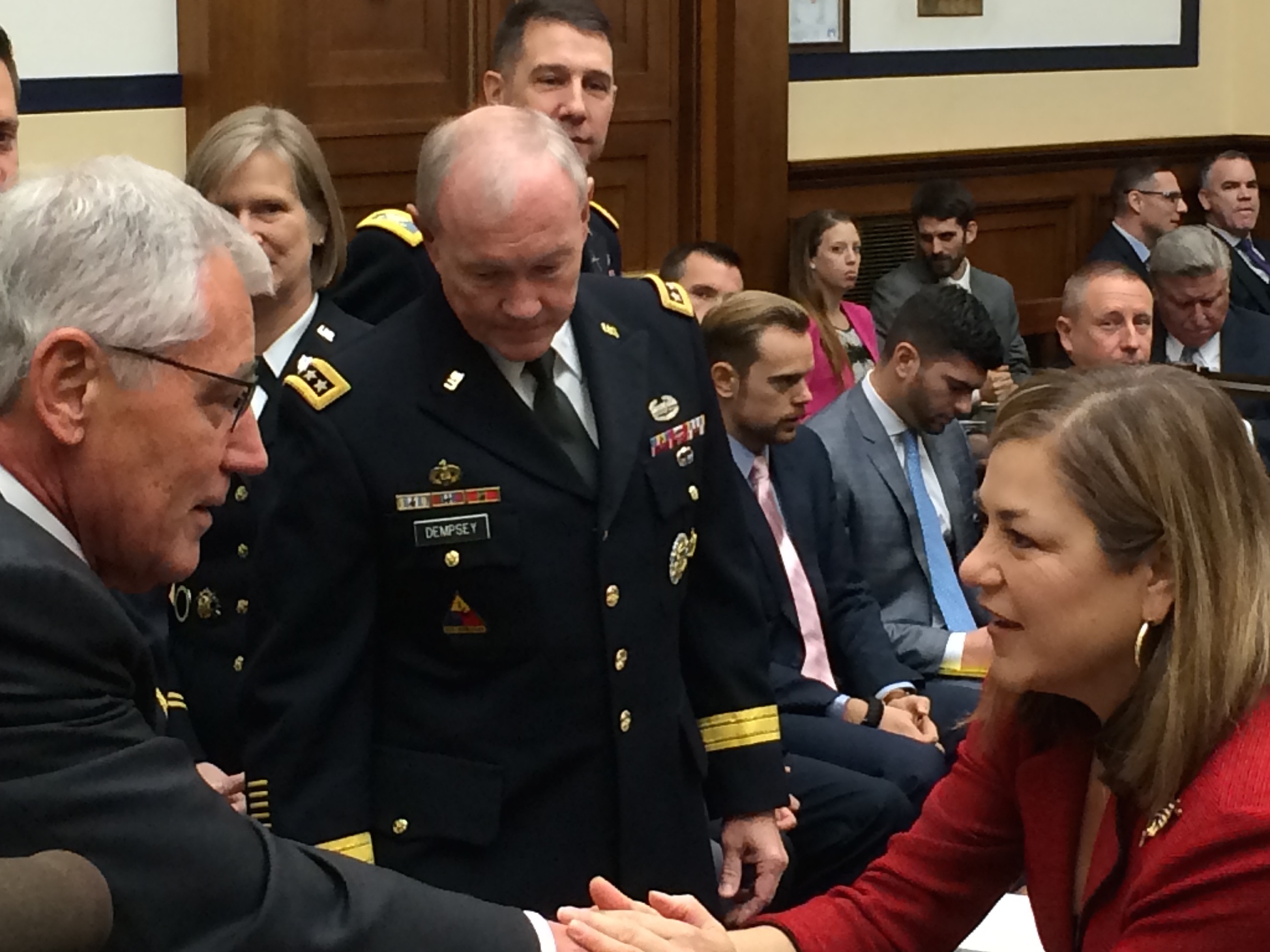WASHINGTON- The Obama administration’s top Pentagon officials said Thursday that they are making progress in Iraq but are still open to the possibility of sending in more military personnel.
Secretary of Defense Chuck Hagel and Chairman of the Joint Chiefs of Staff Martin Dempsey, testifying before the House Armed Services Committee, maintained that additional U.S. personnel – if needed — would be used in advisory positions, not ground combat. They also said that targeted airstrikes, so far, have slowed the momentum of the bloody ISIL insurgency.
“There will be setbacks. But we’re seeing steady and sustainable progress,” Hagel said.
A few minutes earlier, a protester entered the Rayburn Office Building committee room, yelling and holding a sign that read: “there is no military solution”.
Progress in Iraq is defined in part by degrading the momentum of ISIL, the acronym used for the Islamic State of Iraq and the Levant. Gen. Dempsey said that Iraqi security forces and targeted airstrikes together have been able to deny ISIL safe havens and disrupt crude oil refineries that have been the militants’ main source of income.
Dempsey said the U.S, is attempting to leave a modest footprint and “any expansion would be equally modest.” He underscored the importance of holding the Iraqis accountable for the outcome.
“After all, it’s their country,” Dempsey said.
Additional troops and new training facilities would expand the geography of the mission, he said, not the mission itself. Dempsey said that the approval of a defense budget from Congress is vital to continue the battle against ISIL.
President Barack Obama recently asked Congress for $5.6 billion in added spending to fight the Sunni militants, with $1.6 billion designated for training and equipping Iraqi forces. Of that number, $600 million will be held back until Iraq and coalition partners match that amount.
“The Iraqi government must invest in its own future,” Hagel said.
Many members of the House Armed Services Committee, including Rep. Loretta Sanchez,D-Calif., were skeptical. Sanchez brought up earlier campaigns in Iraq and Afghanistan and asked: “What did you learn? What has changed?”
Hagel responded, saying that ISIL is a unique threat because of the indiscriminate brutality, sophistication, strategic knowledge, funding and ideology.
But according to Hagel, the difference this time is leadership in the Iraqi government in Baghdad.
He and Dempsey said that in Prime Minister Haider al-Abadi showed promise by replacing 36 senior commanders and designating Iraq’s first minister of defense in more than 40 years. Hagel said trust in a national unity government is crucial.
“Men and women will not fight if they do not have confidence in their leaders, in their country in their government,” Hagel said.

